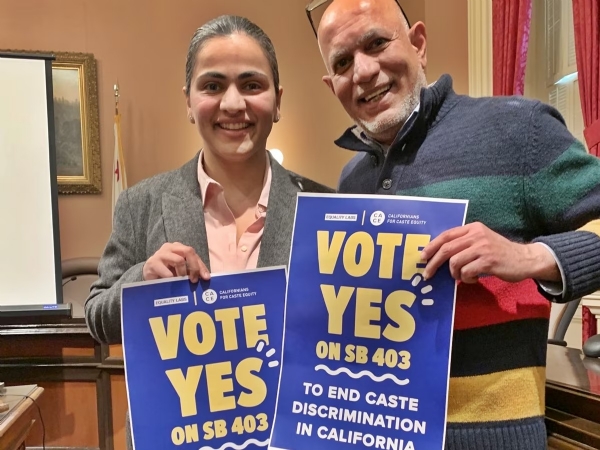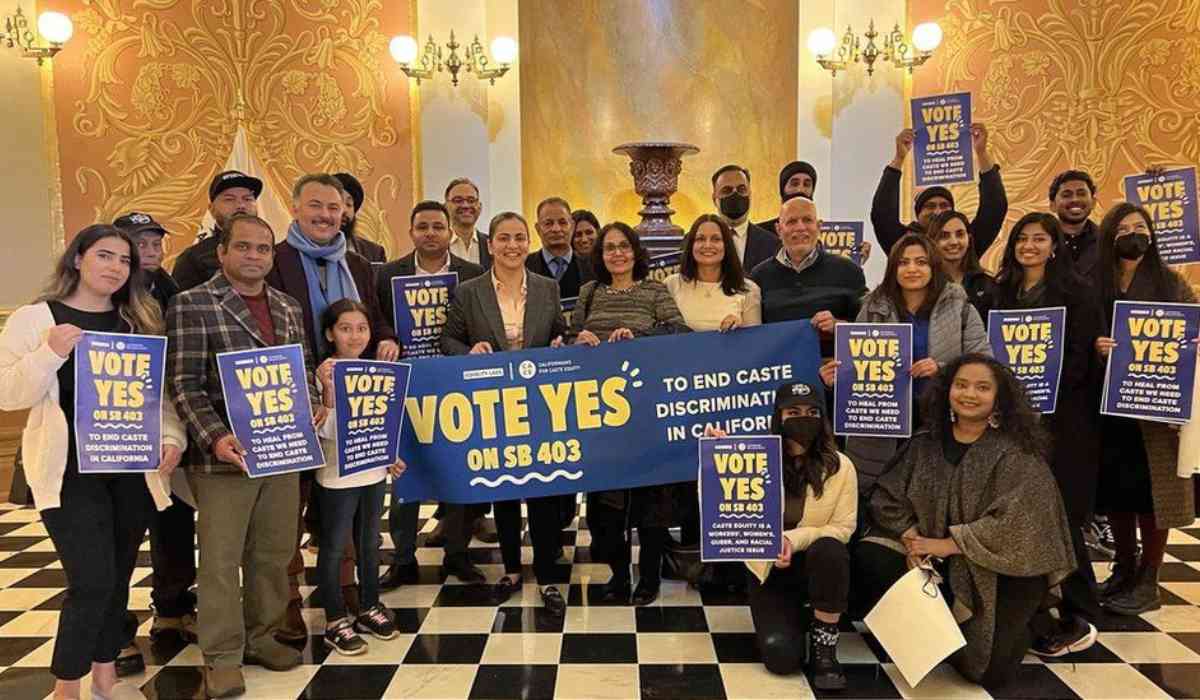California has taken a significant step in addressing caste-based discrimination, a longstanding issue that has affected South Asian communities, particularly in Silicon Valley and Southern California. Recently, the state's lawmakers approved a groundbreaking bill aimed at prohibiting caste-based discrimination within its borders. If this legislation is signed into law by Governor Gavin Newsom, California will become the first state in the United States to officially outlaw such discrimination, which has historically been prevalent in South Asian societies. Seattle had previously become the first U.S. city to enact a similar ban earlier this year.

The bill, known as SB403, was introduced by Democratic Senator Aisha Wahab, who holds the distinction of being the first Muslim and Afghan-American woman elected to the state Legislature. The legislation will now await Governor Newsom's decision on whether to sign it into law.
The driving force behind this bill was Equality Labs, led by Thenmozhi Soundararajan, its executive director. She emphasized the overwhelming support for caste equity protections in California, with more than 700 advocacy meetings held across the state.
The key provision of the bill involves redefining 'ancestry' to encompass 'lineal descent, heritage, parentage, caste, or any inherited social status.' Senator Wahab underscored the need for broader protections in an increasingly diverse society, even when certain issues may not be readily visible to the mainstream public. However, it's worth noting that Senator Wahab faced considerable opposition from some members of the South Asian community in the lead-up to the bill's passage. Critics argued that the legislation unfairly targeted them and even contended that caste discrimination was not a problem in the U.S.
The Hindu American Foundation expressed concerns that South Asians might face intrusive questions or judgments related to their marriages as a result of this law. During the legislative voting process, five Republican Senators opposed the bill, asserting that it could lead to inappropriate judgments against people of South Asian descent. State Senator Shannon Grove, a Republican from Bakersfield, pointed out the complexity of the caste system, which lacks a universally accepted definition.
Some opponents argued that the bill amounted to profiling rather than genuine protection. It's important to note that, in California, voters have the ability to veto laws passed by the Legislature. If a sufficient number of people sign a petition, it can trigger a referendum where voters decide whether to retain or block a particular law.
© Copyright 2023. All Rights Reserved Powered by Vygr Media.
























